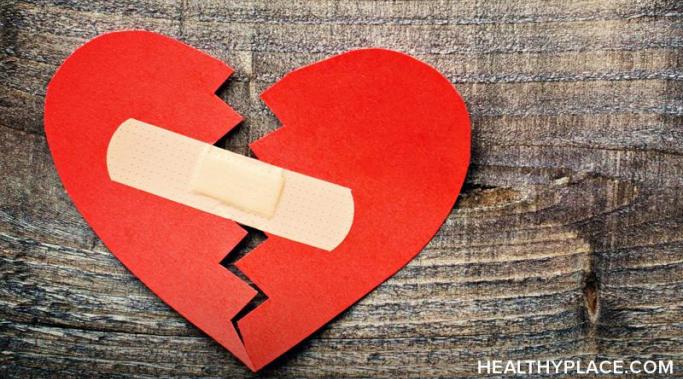Love bombing is the single most effective gaslighting tactic there is and it's anything but romantic. If you haven't heard the term before, you can think of love bombing as a breadcrumb trail of compliments, gifts and expressions of love, all of which make you feel safe and valued at the start of a relationship. Sounds ideal, right? It sure feels that way in the beginning, but what if you're actually being groomed for verbal and physical abuse? Here's how to tell if you are being love bombed and why you should take shelter immediately.
Verbal Abuse in Relationships
If you're verbally abused at work, you may be surprised to learn that verbal abuse in the workplace is more common than you might think and it's a real problem. Not only is it detrimental to productivity, verbal abuse also undermines confidence and stunts career progression, leaving those affected feeling powerless. If you think you or a colleague are being verbally abused at work, read this for how to spot verbal abuse in your workplace, and what to do when it happens.
Trusting again after abuse in a relationship can be frightening, but there comes a time when you’ll want to open yourself up to others. You want to believe that the people you love won’t hurt you, but wasn’t trusting implicitly why you wound up being abused in the first place? Are you partly to blame for being susceptible to narcissists and perpetrators of abuse? This isn't a simple question to answer, but it is crucial to trusting again after abuse.
There is a growing awareness around coercive control, as well as umbrella terms like verbal and emotional abuse. This is partly thanks to the UK law that was passed in 2015 (carrying a prison sentence of up to five years for perpetrators), and also due to celebrities speaking out as part of the #metoo and #timesup movements. Although no such progress has been made in the US in terms of legislation, this is still a step in the right direction; it's the start of our cultures taking lesser-known forms of domestic violence more seriously and recognizing the devastating effects of verbal abuse (as well as other types of abuse). So what exactly is coercive control, and how does it differ from other forms of abuse in a relationship?
Whether it's abuse in movies or in our lives, overcoming abuse is no simple feat -- even abuse in the movies. A quality cinematic experience, or just lounging in sweats watching Netflix, can transport us to another time and place, it allows us to vicariously live through the characters we admire and adore. For some, it can be an even deeper connection, especially when we see a character suffer abuse in movies that we ourselves have personally endured. The following five protagonists suffer and prevail, overcoming abuse to reach the hearts of abuse victims everywhere.
Most likely, you will suffer a loss of identity in a verbally abusive relationship. The relationship will take you as far away from yourself as it's possible to go. Not only will you experience a loss of personal identity, you may even struggle to remember who you were before the abuse took hold. You will become a collaborator in the abusive process and the abuser will make you feel as though everything you experience is your fault, calling into question your personality and your motives (What Are Victims Responsible for in an Abusive Relationship?). So why does this happen, and can we ever unhook ourselves from it? Here's what I learned after my loss of identity in a verbally abusive relationship.
When in the depths of relationship abuse, you're probably considering how your abuser is sabotaging your life. While being proactive and optimistic are important and beneficial, understanding your circumstances is as well. Relationship abuse commonly consists of many abusive behaviors that are sabotaging to the victim's life, and while not all of the behaviors below may be the case for every abusive relationship, there are certainly many that may feel familiar for different cases. Warning, bleak reality checks ahead.
It's one thing to recognize examples of gaslighting abuse in a relationship, but it can be difficult to know how to respond. Part of the problem with gaslighting abuse is that if it were easy to spot, it wouldn't be so effective. The reason these abuse tactics are so insidious is because gaslighters expose themselves gradually, but not without first discovering what makes us tick. As gaslighting abuse targets, we need to understand why and how gaslighters work to get us under their thumb so we can figure out how to respond. You will learn some examples of gaslighting abuse and how to respond to it if you keep reading.
Many of us think we know what gaslighting means, but even so, gaslighting is hard to call out in a relationship because it happens so gradually you might not even notice. Don't be fooled by the displays of gaslighting we see in movies and on TV -- a gaslighter won't necessarily leave the oven on to make you think you're crazy. He or she won't always resort to blatant emotional manipulation tactics or call you a liar. Gaslighting can be a lot more pervasive, subtle and destructive than our basic understanding gives it credit for -- and it could be happening to you. Here's an illustration of what gaslighting means, why gaslighting is so hard to call out in a relationship, as well as the gaslighter types and traits to watch out for.
After the abuse finally ends and you’ve walked away from the relationship, you may start to ponder “How do I make a comeback after abuse?” Your self-image will likely be in shambles and the person you once were won’t be a person you’ll know again (Domestic Abuse Changes Who You Are). That’s okay, and it’s okay because the person you were before was never as strong as the person you have become. Abuse changes you; it alters the very fabric of your inner being. Rather than let those changes be negative, let them build you into a tougher, wiser, smarter person with self-respect, dignity, and a hopeful outlook on life. Continue reading to learn tips and tricks on how to make a comeback after abuse.









